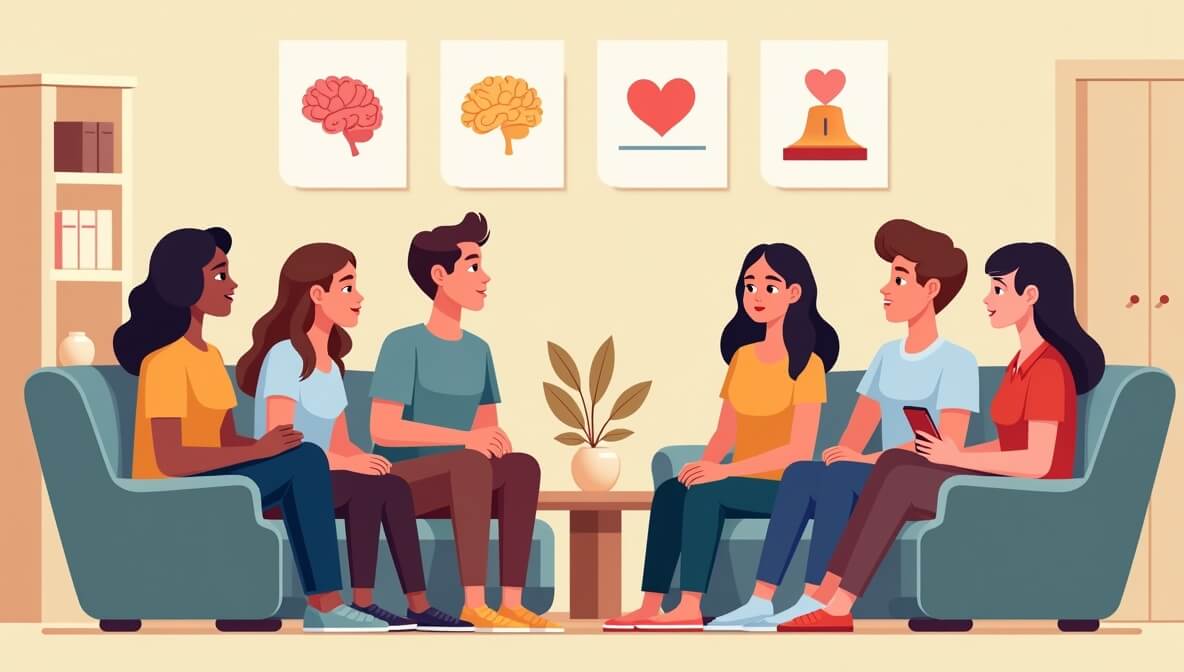Understanding Mental Health: Breaking the Stigma

Mental health is a fundamental aspect of overall well-being, yet it remains surrounded by myths, misconceptions, and stigma. From depression and anxiety to PTSD and bipolar disorder, millions of people worldwide experience mental health challenges—but the social stigma attached often prevents them from seeking help. By understanding mental health and supporting those who struggle with it, we can work together to create a more empathetic and supportive society.
What is Mental Health?
- Mental health refers to our emotional, psychological, and social well-being. It affects how we think, feel, and behave, and influences how we handle stress, relate to others, and make decisions.
- Mental health conditions are common and treatable. In fact, the World Health Organization (WHO) reports that one in four people will experience a mental health disorder at some point in their life [WHO].
- For a comprehensive look into mental health, including common conditions and coping strategies, check out Understanding Mental Health: Breaking the Stigma.
Common Mental Health Conditions
- Understanding different mental health conditions is essential for both empathy and effective support. Here are some of the most common:
- Depression: Persistent feelings of sadness, hopelessness, and loss of interest in activities.
- Anxiety Disorders: Excessive worry, panic attacks, and constant restlessness.
- Bipolar Disorder: Extreme mood swings, ranging from manic highs to depressive lows.
- PTSD (Post-Traumatic Stress Disorder): Emotional and psychological distress following traumatic events.
- For additional insight on managing these conditions and supporting recovery, explore Understanding Different Mental Health Conditions and Management Techniques.
Breaking the Stigma
- The stigma surrounding mental health prevents many individuals from reaching out for help. Common myths include:
- “Mental illness is a personal weakness.”
- “People with mental health disorders are dangerous.”
- “Therapy or treatment is unnecessary.”
- These misconceptions can be dispelled through education, open dialogue, and the visibility of mental health advocates. By sharing personal stories, supporting friends or family, and participating in mental health awareness campaigns, we can significantly reduce the stigma.
How to Support Mental Health
Supporting mental health goes beyond understanding—it involves both personal action and community support.
Personal Practices for Mental Health
- Self-care: Regular exercise, practicing mindfulness, maintaining good sleep hygiene, and eating a balanced diet can greatly improve mental health.
- Therapy: Speaking with a licensed counselor or psychologist is a proven way to work through emotional challenges and develop healthy coping strategies.
- Medication Management: When prescribed, following your healthcare provider’s guidance on medications can help manage symptoms of mental health conditions.
Community Actions for Mental Health
- Create safe spaces for conversations about mental health.
- Offer support without judgment to those who may be struggling.
- Promote mental health education in schools and workplaces, fostering an environment where well-being is prioritized.
For actionable tips on supporting mental health, check out Understanding Mental Health: Breaking the Stigma & Stress Management Techniques.
The Role of Society
- Improving mental health care requires a collective effort. Government programs, NGOs, and community organizations all play a crucial role in providing access to care and reducing stigma. Policies that support mental health services, workplace wellness programs, and inclusive education systems help break down barriers to care.
- The National Institute of Mental Health (NIMH) emphasizes the importance of early intervention, stating that mental health awareness and early treatment significantly improve recovery outcomes [NIMH].
Conclusion: A Shared Human Concern
- Mental health is a universal concern that affects everyone, directly or indirectly. Breaking the stigma requires ongoing education, open dialogue, and consistent support. Whether it’s through individual efforts, community initiatives, or advocacy for better mental health services, every step toward understanding and support makes a difference.
- Mental health is not a taboo topic—it’s part of the shared human experience. By increasing awareness and fostering an environment of empathy, we can ensure that mental well-being is prioritized, and those who struggle with mental health conditions receive the care and understanding they deserve.
